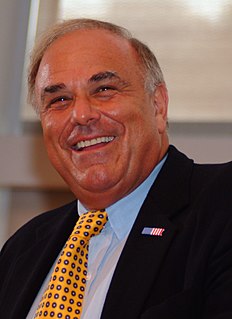A Quote by George Allen
We should favor innovation and freedom over regulation.
Quote Topics
Related Quotes
Religion is a personal, private matter and parents, not public school officials, should decide their children's religious training. We should not have teacher-led prayers in public schools, and school officials should never favor one religion over another, or favor religion over no religion (or vice versa). I also believe that schools should not restrict students' religious liberties. The free exercise of faith is the fundamental right of every American, and that right doesn't stop at the schoolhouse door.
'Freedom' means a lot to conservatives, but they have such a narrow sense of what it means. They think a lot about freedom from - freedom from government, freedom from regulation - and precious little about freedom to. Freedom to is absolutely something that has to be safeguarded by good government, just as it could be impaired by bad government.
I think (fantasy football) has become something that needs to be looked at in terms of regulation. Effectively, it's day trading without any regulation at all. When you have insider information, which has apparently been the case, when you have people who use that information, use big data to try and take advantage of it, there has to be some regulation. If they can't regulate themselves, then the NFL needs to look at moving away from them a little bit, and there should be some regulation.


































